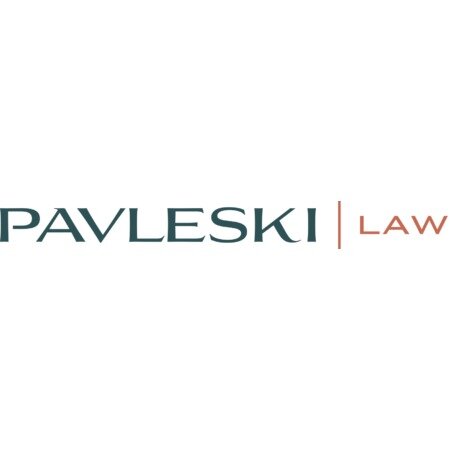Best Child Visitation Lawyers in Serbia
Share your needs with us, get contacted by law firms.
Free. Takes 2 min.
Free Guide to Hiring a Family Lawyer
Or refine your search by selecting a city:
List of the best lawyers in Serbia
About Child Visitation Law in Serbia
Child visitation laws in Serbia are designed to ensure that children maintain relationships with both parents, even when they do not live together. Serbian law prioritizes the best interests of the child, providing structured guidelines for non-custodial parents to spend time with their children. The court typically decides on visitation rights during divorce or separation, based on an agreement between parents or a court decision if an agreement cannot be reached.
Why You May Need a Lawyer
There are several situations where individuals may require legal assistance regarding child visitation in Serbia. A lawyer can be crucial when parents disagree on visitation schedules, or if a parent believes their visitation rights are being violated. Legal representation is also beneficial in cases where there are concerns about the child’s safety, or if one parent seeks to modify an existing visitation arrangement. Additionally, if one parent plans to relocate, a lawyer can help navigate the legal implications on visitation rights.
Local Laws Overview
Serbian family law is detailed under the Family Act, which governs child custody, visitation, and support. Key aspects include the child's right to maintain personal relations with both parents, irrespective of their relationship status. Courts usually grant visitation rights to non-custodial parents unless there are compelling reasons to restrict access, such as risks to the child’s well-being. Furthermore, any changes to visitation need to be justified and approved by the court. Mediation is encouraged to resolve disputes, and legal enforcement can be sought if visitation rights are not honored.
Frequently Asked Questions
What are the basic visitation rights in Serbia?
Visitation rights are generally granted to the non-custodial parent to maintain regular contact with their child, subject to the child's best interest, as determined by mutual agreement or court decision.
Can visitation rights be denied?
Yes, visitation rights can be denied if there is evidence that such contact would harm the child's well-being, such as in cases involving domestic abuse or neglect.
How is the visitation schedule determined?
The schedule can be determined by mutual agreement between the parents or, if they cannot agree, by a court decision which considers the child's needs and each parent's circumstances.
Can visitation rights be changed?
Yes, visitation rights can be modified if there is a significant change in circumstances warranting a new arrangement, subject to the court's approval.
What happens if a parent disobeys a visitation order?
If a parent disobeys a court-ordered visitation, the other parent can seek enforcement through legal channels, which may involve mediation or, ultimately, court intervention.
Is mediation required for visitation disputes?
Mediation is not mandatory but is encouraged to amicably resolve disputes outside of court. It provides a platform for parents to negotiate an arrangement that works best for both parties and the child.
Can grandparents or other relatives obtain visitation rights?
Yes, under certain conditions, courts may grant visitation rights to close relatives, such as grandparents, if it is in the best interest of the child.
Are visitation arrangements the same in international cases?
International visitation arrangements may require additional legal considerations, especially if involving different jurisdictions. In such cases, international treaties and agreements may apply.
How do relocation plans affect visitation rights?
If a parent plans to relocate, this could impact visitation rights and may require a court to reassess and adjust existing arrangements to accommodate both parents and the child's needs.
What legal steps can be taken if my child refuses visitation with the other parent?
If a child refuses visitation, it's essential to understand the reasons and address them appropriately. Legal advice may be necessary to modify the visitation arrangement in the best interests of the child, if required.
Additional Resources
For more assistance and information, individuals can contact the Serbian Center for Social Work, which provides family support services. Legal aid organizations and family law attorneys can also offer guidance and representation. The Ministry of Justice in Serbia provides resources on family law, including publications on child rights and family matters.
Next Steps
If you need legal assistance with child visitation matters in Serbia, consider consulting a specialized family law attorney to discuss your rights and options. You may also reach out to local social services for support and mediation services. Understanding your legal rights and having professional guidance can help ensure the best outcomes for you and your child.
Lawzana helps you find the best lawyers and law firms in Serbia through a curated and pre-screened list of qualified legal professionals. Our platform offers rankings and detailed profiles of attorneys and law firms, allowing you to compare based on practice areas, including Child Visitation, experience, and client feedback.
Each profile includes a description of the firm's areas of practice, client reviews, team members and partners, year of establishment, spoken languages, office locations, contact information, social media presence, and any published articles or resources. Most firms on our platform speak English and are experienced in both local and international legal matters.
Get a quote from top-rated law firms in Serbia — quickly, securely, and without unnecessary hassle.
Disclaimer:
The information provided on this page is for general informational purposes only and does not constitute legal advice. While we strive to ensure the accuracy and relevance of the content, legal information may change over time, and interpretations of the law can vary. You should always consult with a qualified legal professional for advice specific to your situation.
We disclaim all liability for actions taken or not taken based on the content of this page. If you believe any information is incorrect or outdated, please contact us, and we will review and update it where appropriate.
Browse child visitation law firms by city in Serbia
Refine your search by selecting a city.

















